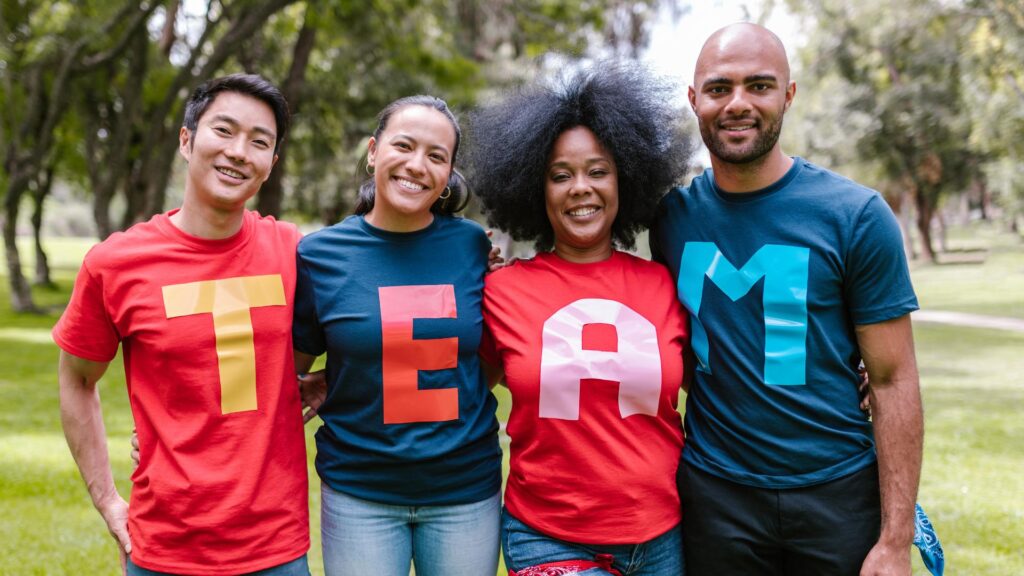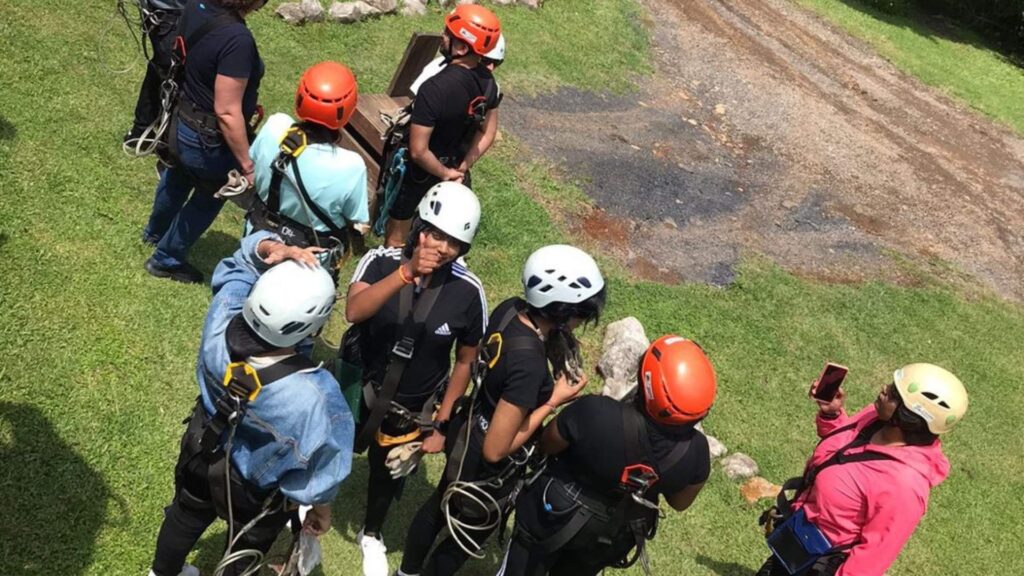Effective team building starts with strong leadership. In 2025, South African businesses face fast-changing work environments, rising employee expectations, and increasingly remote or hybrid teams. To navigate this landscape, great leaders must step up—not only to manage people, but to unite them with purpose, clarity, and trust.
Key Takeaways: The Role of Leadership in Effective Team Building
- Strong, emotionally intelligent leadership is the foundation of effective team building in modern workplaces.
- Creating psychological safety helps teams feel heard, take risks, and collaborate more effectively.
- Remote and hybrid teams require intentional connection through regular communication and informal check-ins.
- Cross-functional collaboration, driven by leadership, breaks down silos and improves innovation.
- Embracing cultural diversity and local values like Ubuntu strengthens team unity and trust.
- Strategic, goal-aligned team-building activities increase morale, performance, and engagement.
- Effective leaders adapt their style to support autonomy, encourage participation, and build genuine team connection.

Why Leadership Is the Cornerstone of Effective Team Building
A team doesn’t become effective simply by putting skilled individuals together. What truly matters is how they work together. This is where leadership plays a critical role. According to a 2023 report from McKinsey & Company, high-performing teams are five times more likely to have strong, empowering leaders who encourage collaboration, innovation, and trust.¹
Leadership shapes the environment where teams either thrive or falter. From setting clear goals to modelling communication and handling conflict, leaders influence almost every element of team dynamics. Without intentional leadership, even the most talented team can struggle.
Key Traits of Leaders Who Build Strong Teams
To support effective team building, leaders must develop a few key traits:
1. Emotional intelligence (EQ)
Good leaders are self-aware and empathetic. They understand their team members’ needs, stressors, and motivations—especially important in diverse South African workplaces. A 2022 Harvard Business Review study showed that leaders with high EQ boost team performance by up to 20%.²
2. Clear communication
South Africa’s multilingual, multicultural business environment makes communication both a challenge and an opportunity. Effective leaders ensure everyone understands the mission, roles, and how their work contributes to the bigger picture.
3. Empowerment over control
Modern leadership isn’t about micromanaging. It’s about giving your team autonomy, while offering support and guidance. When people feel trusted, they’re more likely to take ownership and work collaboratively.
Leadership Tactics for Effective Team Building in 2025
As we settle into 2025, the demands of the workplace have evolved. Here’s how leaders can adapt to ensure effective team building remains a core strength in their organisation:
1. Promote psychological safety
Psychological safety—the belief that team members can take risks and be vulnerable without fear of punishment—is essential. Google’s Project Aristotle found that this was the top factor in successful teams.³
Leaders should create a space where employees can ask questions, admit mistakes, and offer ideas. This is especially crucial in South Africa, where historical power dynamics and cultural sensitivities can affect how freely people express themselves.
2. Foster collaboration across departments
Gone are the days of siloed teams. In 2025, business success often depends on cross-functional collaboration. Leaders need to intentionally break down barriers between departments and encourage collective problem-solving.
3. Invest in team-building experiences
Whether virtual or in-person, team-building activities help foster trust and cohesion. But it’s not just about fun and games—done right, these activities align with business goals. According to Deloitte’s Human Capital Trends report, companies that invest in team development see a 25% increase in performance.⁴
Local companies like Cape Town’s Team Building South Africa or Gauteng-based Horizon Corporate Team Building offer tailored experiences designed to enhance communication, problem-solving, and group morale.

Adapting to Remote and Hybrid Work
With remote and hybrid work still common in South Africa, leadership must now take a more deliberate approach to effective team building. Leaders need to:
- Schedule regular check-ins (not just performance reviews).
- Use digital tools like Slack, Zoom, or Microsoft Teams to keep communication flowing.
- Encourage informal interaction—virtual coffee chats, for instance—to help maintain social connection.
Remote workers who feel connected are 2.5 times more likely to report high engagement, according to Gallup’s State of the Global Workplace report.⁵ That level of engagement starts with leadership.
South African Context: Cultural Diversity as an Asset
Our country’s cultural richness can be a huge strength when approached with respect and awareness. Leaders who understand the dynamics of diverse teams are better equipped for effective team building.
For example, Ubuntu—the philosophy of “I am because we are”—resonates deeply with the spirit of teamwork and mutual respect. Leaders who embrace this mindset tend to build more cohesive, purpose-driven teams.

Conclusion: Leadership Is the Game-Changer
In 2025, effective team building is not a “nice to have”—it’s a strategic necessity. With the right leadership, South African businesses can unlock the full potential of their teams. Whether you’re running a small startup in Durban or leading a large corporation in Johannesburg, your ability to build and guide a strong team will set you apart.
By embracing emotional intelligence, fostering trust, and adapting to the realities of modern work, leaders can shape teams that are not only productive, but genuinely connected.
Sources:
- McKinsey & Company. (2023). The State of Teams Report — www.mckinsey.com
- Harvard Business Review. (2022). Emotional Intelligence and Team Performance — www.hbr.org
- Google’s Project Aristotle. (2015). What Google Learned From Its Quest to Build the Perfect Team — rework.withgoogle.com
- Deloitte Insights. (2023). Human Capital Trends — www2.deloitte.com
- Gallup. (2023). State of the Global Workplace Report — www.gallup.com


